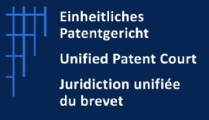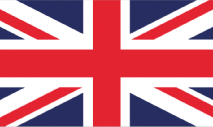The Irides Weekly Update is our round-up of patent litigation news highlights from around the world. Taking its name from the plural of “iris” - a nod to the ability of Irides to see what’s happening around the world.
Our latest edition - 15 March 2024 - is below:

EU
CJEU holds that the Paris Convention does not allow cross-IP priority claims in general, thus disagreeing with the Advocate General’s earlier Opinion in the case of EUIPO v The KaiKai Company Jaeger Wichmann
In 24 October 2018 the claimant, KaiKai Company Jaeger Wichmann (KaiKai), filed an application for the registration of 12 community designs with the EUIPO and claimed priority on the basis of a PCT patent application filed on 26 October 2017. The priority claims were refused by the EUIPO examiner because the date of filing KaiKai’s design applications exceeded the six-month period set out in Art. 41(1) of the Community Design Regulation (CDR).
KaiKai appealed to the EUIPO’s Board of Appeal and subsequently to the General Court. KaiKai’s appeal to the General Court was successful; it was held that the EUIPO had erred in their decision to apply the 6-month limit on priority claims when the application relied on was a patent application. The General Court considered Art. 41(1) CDR which states that “a person who has duly filed an application for a design right or for a utility model in or for any State party to the Paris Convention for the Protection of Industrial Property, or to the Agreement establishing the World Trade Organisation, or his successors in title, shall enjoy, for the purpose of filing an application for a registered Community design in respect of the same design or utility model, a right of priority of six months from the date of filing of the first application”. Patent rights are not mentioned in the Article. To fill this “legislative gap”, the General Court relied on the Paris Convention, which states at Art. 4(C)(1) that the priority period for a patent is 12 months and allows reliance on cross-IP rights. The General Court agreed with the EUIPO that a PCT application could, in principle, form the basis of a priority right for design applications due to the broad definition of the concept of “patent” in the Patent Cooperation Treaty (PCT) which includes “utility models”.
The CJEU rejected the findings of the General Court (and the appeal generally) holding that:
(i) an application for priority should be made within 6 months regardless of whether the international application concerns a utility model or a patent; and
(ii) in any event, it is not possible to claim priority for a design application from a patent application.
The CJEU explained that it follows “unequivocally” from the clear wording of Art. 41(1) that only two categories of earlier application (the registration of a design and an application for the registration of a utility model) can form the basis of a right of priority for a subsequent design application. Therefore, an international application filed under the PCT may only be relied upon for a priority claim if it is an application for a utility model. While Art. 4(E) of the Paris Convention allows a priority claim to rely on a form of protection different from that sought earlier, this is an exhaustive list limited to the following: (1) utility models can support a priority claim for industrial deigns; and (2) a patent application can support a priority claim for a utility model and vice versa.
Regarding timing, the CJEU held that neither Art. 41(1) CDR nor Art. 4 of the Paris Conversion make it possible to claim priority for a subsequent design application based on an international PCT application (regardless of the type of application) within a period greater that 6 months.

UPC
Update from appeal hearing on access to documents
On 12 March 2024, the UPC’s Court of Appeal in Luxembourg presided over an appeal focussing on requests for access to pleadings and evidence under r. 262(1)(b) UPC Rules of Procedure (RoP).
The appeal follows a request by the applicant (Dr Christopher Stothers) to view the Statement of Claim submitted in Ocado v Autostore and any orders made in the case on the basis of r. 262(1)(b). This application was initially approved by the Nordic-Baltic Regional Division in October 2023 although similar requests have been denied by other first instance UPC divisions. Ocado lodged an appeal against this decision in November. As a result, the effect of the original ruling was stayed. Subsequently, a UPC Court of Appeal order called for an oral hearing to take place in relation to Ocado’s appeal and held that any member of the public requesting access to the register pursuant to r. 262.1(b) must be professionally represented before the UPC. As Dr Stothers was a member of the public, it was necessary for him to appoint an authorised representative.
The oral hearing was heard by three legally qualified UPC Court of Appeal judges (Presiding Judge Rian Kalden, Judge Patricia Rombach and Judge Rapporteur Ingeborg Simonsson). Notably, no technical judges were present at the hearing, in line with an earlier Order of the Court of Appeal in a parallel action (Oppo v Panasonic) dated 20 December 2023. The appellant, Ocado, supported by Autostore (the Defendant in the main action), and the respondent, Dr Stothers (accompanied by his newly appointed authorised representatives), both made submissions on the issue of document access under r. 262(1)(b) among other things.
Bristows and patent attorney firm Mathys & Squire had previously applied to intervene in these proceedings under r. 313. However, both requests were denied on the basis that neither had a direct interest in the result of the appeal, and only an indirect interest by reason of similarities between their situation and that of Dr Stothers. Nevertheless, a member of the Bristows team attended the hearing in person as an observer. The Court of Appeal indicated it would issue its decision as soon as possible, but did not give a date for judgment. A further report on the Court’s findings will be provided once judgment has been handed down.

UK
Patents Court provides guidance on when it is appropriate to use a scientific adviser or an expert
On 8 March 2024, Mr Justice Mellor handed down a judgment following a case management conference in patent entitlement proceedings between Dr Vanessa Hill and Touchlight Genetics. In this decision, the Judge gave guidance on the role of scientific advisers in comparison with technical experts in patents court proceedings.
The dispute concerns patents and patent applications relating to aspects of a synthetic DNA vector and its enzymatic production, which can be applied in fields including genome editing and DNA vaccines. To resolve the issues in the case, the Judge and parties agreed that the Court would need a detailed understanding of the technology and inventive concepts in issue. In particular, the Court would probably need to assess at least: (i) the likelihood of particular disclosures being made orally; (ii) how each alleged disclosure sits in the context of the whole development; and (iii) whether the Claimant’s recollection was influenced by later events.
The Claimant contended that the Court should address these issues using its power under s. 70(3) of the Senior Courts Act 1981 and CPR 35.15 to appoint a scientific adviser. The Defendants’ position was that the instruction of technical experts by the parties would be the most appropriate procedure.
Having considered previous authorities, the Judge explained that there is a clear distinction between the role of an expert and scientific adviser in patent proceedings. Unlike an expert, a scientific adviser may only act as an educator on non-contentious issues and must not address any technical issues in dispute. This decision re-affirmed that the appointment of a scientific adviser is therefore reserved only for those exceptional cases where it is necessary to provide extra assistance to the Judge in addition to expert evidence.
For this reason, the Judge granted permission for expert evidence but did not appoint a scientific adviser, indicating that he had “no hesitation in ruling that the appointment of a [scientific adviser] (without expert evidence) does not appear a sufficient or satisfactory way to address the technical issues in this case” as “the appointment of a [scientific adviser] without expert evidence would be unprecedented, inappropriate and contrary to authority”.
Although permission for expert evidence was granted, the Judge stated that “unbounded” permission would be unwise. Mellor J therefore directed the parties to arrange a discussion between the experts for the purpose of seeking to reach agreement on the technical issues and preparing a statement for the court setting out the issues on which they agree or disagree (including a summary of the expert’s reasons for disagreeing).

/Passle/5f3d6e345354880e28b1fb63/MediaLibrary/Images/2025-09-29-13-48-10-128-68da8e1af6347a2c4b96de4e.png)
/Passle/5f3d6e345354880e28b1fb63/MediaLibrary/Images/2025-07-10-13-52-35-189-686fc5a39f23a993118ba1a0.png)
/Passle/5f3d6e345354880e28b1fb63/SearchServiceImages/2026-02-20-09-54-03-745-69982f3bff07facd13d88f69.jpg)
/Passle/5f3d6e345354880e28b1fb63/SearchServiceImages/2026-02-18-09-25-14-317-6995857a406a38553e720e5d.jpg)